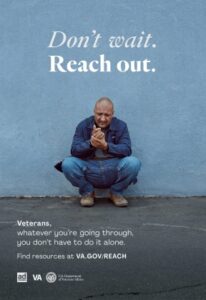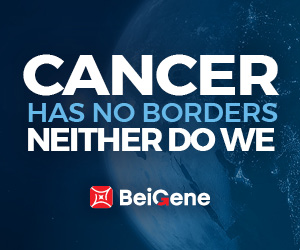Benefits Available Also to Veterans Not Enrolled in VA Care
WASHINGTON, DC — At the beginning of this year, VA announced a program whereby veterans in suicidal crisis could go to any VA or non-VA healthcare facility for free emergency healthcare. The benefit, which applied to all veterans, not only those enrolled in VA healthcare, also included inpatient or crisis residential care for up to 30 days and outpatient care for up to 90 days.
Last month, the VA announced that 32,469 veterans facing suicidal crises received free emergency healthcare under the new initiative.
The thinking behind the expansion of care was that it would help prevent veteran suicide by guaranteeing no cost, world-class care to veterans in times of crisis. It also increased access to acute suicide care for as many as 9 million veterans who are not currently enrolled in VA care.
The program is part of the Veterans Comprehensive Prevention, Access to Care, and Treatment (COMPACT) Act of 2020. It allowed VA to:
- Provide, pay for or reimburse for treatment of eligible individuals’ emergency suicide care, transportation costs and follow-up care at a VA or non-VA facility for up to 30 days of inpatient care and 90 days of outpatient care.
- Make appropriate referrals for care following the period of emergency suicide care.
- Determine eligibility for other VA services and benefits.
- Refer eligible individuals for appropriate VA programs and benefits following the period of emergency suicide care.
Eligible individuals, regardless of VA enrollment status, are:
- Veterans who were discharged or released from active duty after more than 24 months of active service under conditions other than dishonorable.
- Former members of the armed forces, including reserve servicemembers, who served more than 100 days under a combat exclusion or in support of a contingency operation either directly or by operating an unmanned aerial vehicle from another location who were discharged under conditions other than dishonorable.
- Former members of the armed forces who were the victim of a physical assault of a sexual nature, a battery of a sexual nature or sexual harassment while serving in the armed forces.
Also, last month, the VA announced $52.5 million in new veteran suicide prevention grants and a new set of Veteran suicide prevention public service announcements (PSA).
“There is nothing more important to VA than preventing veteran suicide—nothing,” said VA Secretary Denis McDonough. “One veteran suicide is one too many, and VA will continue to use every tool at our disposal to prevent these tragedies and save Veterans’ lives.”
$52 Million in Grants
VA said it is granting more than $52 million to 80 community-based organizations in 43 states, the District of Columbia, Guam and American Samoa as a part of the Staff Sergeant Parker Gordon Fox Suicide Prevention Grant Program. These grants will help these organizations provide or coordinate the provision of suicide prevention services for eligible veterans and their families.
The new veteran suicide prevention PSAs were created by the VA and the Ad Council as part of the ongoing national campaign, “Don’t Wait. Reach Out.” These include one set of PSAs directed by Academy Award–winning film director and screenwriter Kathryn Bigelow, and another PSA featuring Metallica. Since the initial launch of the campaitn in October 2021, more than 3.5 million visits have been made to VA.gov/REACH to get needed support.
The agency also revealed that its initiative to shorten the Veteran Crisis Line number has been fruitful.“Since the launch of “Dial 988 then press 1” as the shortened Veterans Crisis Line number in July 2022, the crisis line has fielded more than 1.1 million contacts,” according to a press release. “This includes over 953,000 calls, an increase of 12.1% from the same timeframe from the previous year, with an average speed to answer of 9.48 seconds. There was also a year-over-year increase in text messages (58.1%) and online chats received (10%). This increase in contacts is evidence that the hotline is working—veterans in crisis are getting the help they need at the moment they need it.”
The VA will release the 2023 National Veteran Suicide Prevention Annual Report later this autumn. Last year’s report indicated that veteran suicides decreased from 2019 to 2020 (the most recent year for which data was available) and fewer veterans died by suicide in 2020 than in any year since 2006.


